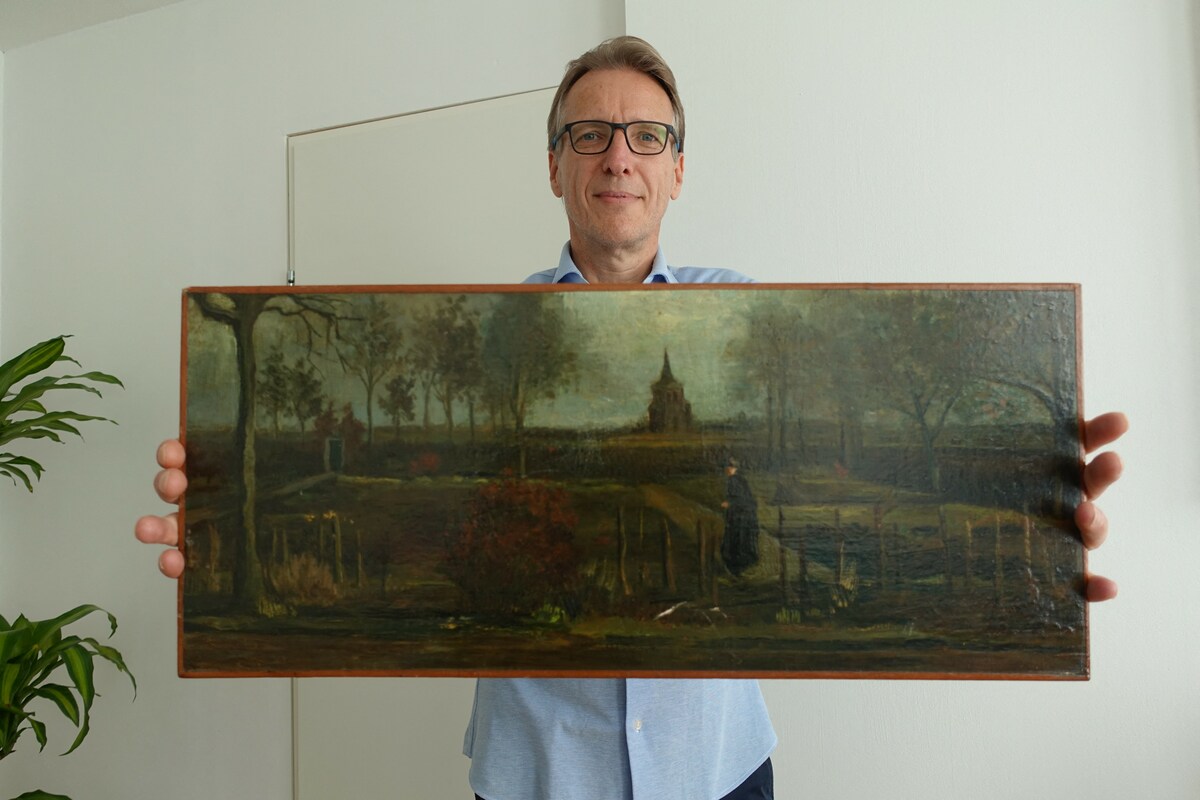Rotterdam, Netherlands — A precious Vincent van Gogh painting stolen and then handed to a Dutch art sleuth in an IKEA bag was displayed Wednesday for the first time since its headline-grabbing return.
The 1884 “Parsonage Garden at Nuenen in Spring”, worth up to six million euros ($6.8 million), was unveiled to media at a Rotterdam museum, with damage from the theft still visible.
A deep white scratch can be seen at the bottom of the canvas.
“I would call this a severe one because it goes through all the layers, the varnish, the paint layers, and then into the ground layer, which is white,” said the painting’s restorer Marjan de Visser.
“Underneath is the original canvas, which is also a little bit damaged,” de Visser told AFP, adding the damage probably came from the painting bumping into something hard.
De Visser said she was conducting a thorough investigation into the painting, examining the materials used, previous restorations, how it was mounted.
“Without knowing, you can’t do anything, you can’t make a proposal for its conservation,” she said.
She has already removed dirt from the painting and started taking off some of the varnish, preparatory steps for the restoration proper.
Wednesday’s showing was just for media, but the public will be able to view the painting from March 29 in Groningen Museum, in the north of the Netherlands.
The painting was stolen in a daring midnight heist during the March 2020 Covid-19 lockdown from the Singer Laren Museum near Amsterdam, when it was on loan from Groningen.
Video footage released by police showed a thief smashing through a glass door in the middle of the night, before running out with the painting tucked under his right arm.
The painting’s whereabouts was unknown for three and a half years before sensationally resurfacing in the possession of an art sleuth dubbed the “Indiana Jones of the Art World.”
A man, whose identity was not revealed for his own safety, handed back the painting to Arthur Brand in a blue IKEA bag, covered with bubble-wrap and stuffed in a pillow casing.
The painting comes from relatively early on in Van Gogh’s career, before the prolific artist embarked on his trademark post-impressionist paintings such as “Sunflowers” and his vivid self-portraits.
“This is how the young Van Gogh painted, before he went to art academy in Antwerp,” said De Visser.








